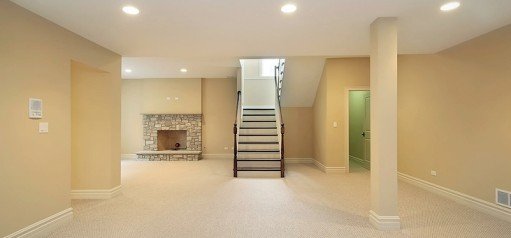Basement systems encompass a range of solutions designed to address issues such as water seepage, mold growth, and structural problems. These systems aim to create a dry, safe, and habitable space within the basement.
Importance of a Well-Maintained Basement
A well-maintained basement contributes to the overall health of your home. It prevents potential issues that can arise from water damage, ensures structural stability, and enhances the indoor air quality of your living spaces.
Common Basement Issues
Water Seepage and Leakage
One of the primary challenges faced by homeowners is water seepage and leakage in the basement. This can lead to dampness, mold growth, and damage to belongings stored in the basement.
Mold and Mildew Growth
The dark and often damp environment of basements creates an ideal breeding ground for mold and mildew. These not only pose health risks but can also compromise the structural integrity of your home.
Structural Problems
Cracks in the walls and floors, as well as other structural issues, can arise over time. These may be a result of water damage, soil settlement, or other factors that affect the foundation of your home.
Signs of a Failing Basement
Musty Odors
A persistent musty odor in the basement is often a sign of mold or mildew growth. Addressing this issue promptly is crucial to maintaining a healthy living environment.
Cracks in Walls and Floors
Visible cracks in the basement walls and floors may indicate structural issues. Regular inspections can help identify these problems early on.
Puddles or Dampness
Puddles or damp spots in the basement suggest water seepage. Identifying and fixing the source of the water is essential to prevent further damage.
Benefits of Basement Waterproofing
Preventing Water Damage
Basement waterproofing is a proactive approach to prevent water damage, protecting your home from costly repairs and ensuring a dry, comfortable living space.
Improving Indoor Air Quality
By eliminating moisture and preventing mold growth, basement waterproofing contributes to better indoor air quality, reducing the risk of respiratory issues.
Protecting Structural Integrity
Water damage can compromise the structural integrity of a home. Waterproofing safeguards against such issues, ensuring the longevity of your property.
Different Basement Waterproofing Solutions
Exterior Waterproofing
Exterior waterproofing involves creating barriers outside the basement walls to prevent water from entering. This is an effective solution for homes with poor drainage.
Interior Waterproofing
Interior waterproofing focuses on managing water that has already entered the basement. Techniques may include sealants, drainage systems, and sump pumps.
Sump Pump Installation
Sump pumps are essential components of basement waterproofing. They efficiently pump out excess water, preventing flooding and water damage.
DIY Basement Maintenance Tips
Regular Inspections
Conducting regular inspections allows homeowners to identify potential issues early on. Look for signs of water damage, mold, and structural problems.
Proper Ventilation
Ensuring proper ventilation in the basement helps prevent the buildup of moisture, reducing the risk of mold growth.
Controlling Humidity Levels
Investing in a dehumidifier can help control humidity levels in the basement, creating a less favorable environment for mold and mildew.
Professional Basement Repair Services
Hiring a Basement Waterproofing Contractor
Professionals can assess the specific needs of your basement and recommend tailored solutions. Hiring a reputable contractor ensures the job is done efficiently and effectively.
Foundation Repair Experts
Addressing structural problems requires the expertise of foundation repair specialists. They can identify the root cause of issues and implement lasting solutions.
Mold Remediation Specialists
If mold is already present, it’s crucial to enlist the services of mold remediation specialists. They can safely and effectively remove mold, restoring the health of your home.
Cost Considerations
Factors Influencing Basement System Costs
The cost of implementing basement systems can vary based on factors such as the extent of the issues, the chosen solutions, and the size of the basement.
Return on Investment
Investing in basement systems is a proactive measure that pays off in the long run by preventing costly repairs and preserving the value of your home.
Case Studies
Successful Basement Transformations
Explore real-life case studies showcasing how basement systems have transformed damp, unusable spaces into functional, dry areas.
Before and After Scenarios
Visualize the impact of basement waterproofing through before-and-after images, highlighting the positive changes achieved.
Choosing the Right Basement System for Your Home
Assessing Your Basement’s Needs
Every basement is unique, and assessing its specific needs is crucial for choosing the right waterproofing solutions.
Consulting with Experts
Seeking advice from basement waterproofing experts helps homeowners make informed decisions about the most suitable systems for their homes.
FAQs About Basement Systems
How long does basement waterproofing take?
The duration of basement waterproofing depends on factors like the size of the basement and the chosen waterproofing methods. On average, it can take a few days to a couple of weeks.
Can I waterproof my basement myself?
While some DIY solutions exist, it’s advisable to consult with professionals for effective and lasting waterproofing. DIY attempts may not address the root causes of the issues.
What is the average cost of basement waterproofing?
The cost varies based on factors like the extent of the issues, the chosen solutions, and the size of the basement. On average, it can range from a few hundred to several thousand dollars.
Are there any DIY solutions for basement leakage?
DIY solutions may include sealing cracks, improving drainage, and using waterproofing paint. However, these are temporary fixes, and professional intervention is recommended for long-term results.
How often should I inspect my basement for issues?
Regular inspections are recommended at least twice a year. However, after heavy rainfall or significant weather events, it’s wise to check for signs of water damage promptly.
Conclusion
In conclusion, investing in a robust basement system is a proactive measure that enhances the longevity and livability of your home. Whether addressing water issues, mold growth, or structural concerns, basement systems play a crucial role in maintaining a healthy and secure living environment.

